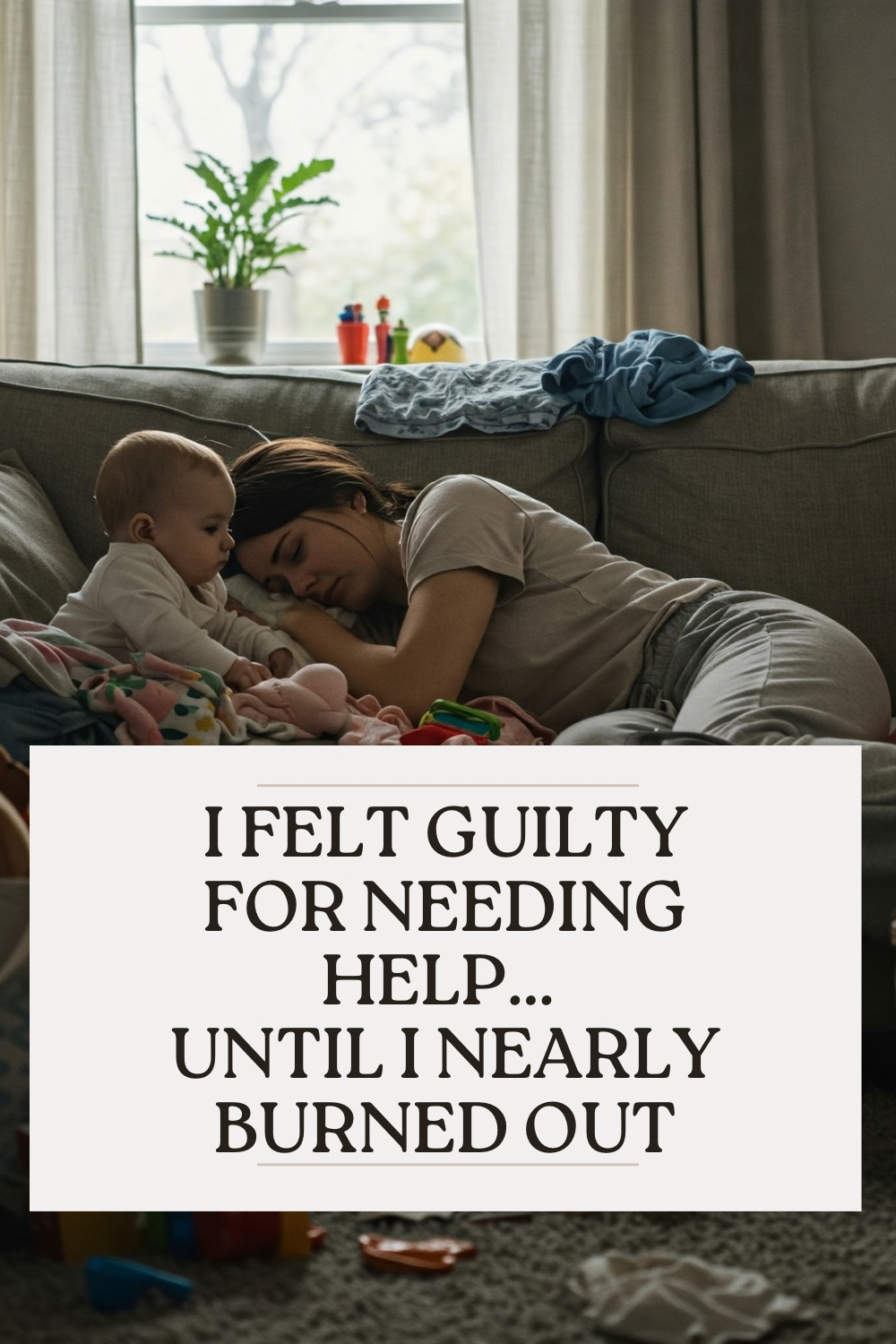I thought needing help meant I was failing.
So I didn’t ask.
Not when I hadn’t eaten all day.
Not when I was juggling a screaming baby in one arm and scrubbing vomit with the other.
Not when I sat in the shower, sobbing, because it was the only place I could steal a moment alone.
I just kept going.
Because that’s what “strong” moms do, right?
Wrong.
The day I nearly collapsed—physically shaking, unable to think straight—was the day I realized: I wasn’t being strong. I was burning out.
I was bitter.
I snapped at my partner, my parents, even strangers.
I flinched at my baby’s cries—not because I didn’t love her, but because my brain couldn’t handle one more sound.
I felt ashamed. Ashamed for feeling this way. Ashamed that I craved an hour alone more than anything else.
Worst of all, I felt guilty.
Guilty for not being the “perfect” mom. Guilty for needing help when everyone else seemed to have it together.
No one told me burnout could feel worse than labor.
Labor had nurses, a plan, and an end.
Burnout? It hit me in the middle of my messy living room, with a cold coffee, a screaming toddler, and laundry piles mocking me.
And I had no plan.
But here’s what I wish someone had told me:
Needing help isn’t weakness. It’s survival.
And you don’t have to do this alone.
What Asking for Help Looked Like for Me
It wasn’t a fancy nanny or a weekend retreat. It was small, messy, human steps:
• Saying “yes” when my sister offered to drop off dinner, even if it was just pizza.
• Letting my partner take the baby for an hour, even if he didn’t do the diaper “my way.”
• Leaving the dishes in the sink and napping for 15 minutes, guilt be damned.
• Writing down one thing I was proud of each day—like “I kept us both alive”—to remind myself I wasn’t failing.
It also meant facing the judgment.
When I finally asked for help, not everyone understood. My mom said, “I raised three kids without complaining.” A friend implied I was “lucky” to have a partner and should just “push through.” Those words stung. But I learned to respond with honesty:
“I’m not okay right now, and I’m doing what I need to take care of myself and my baby.”
It wasn’t easy, but setting that boundary helped me let go of their expectations and focus on my own survival.
Most importantly, asking for help meant giving myself permission to not be okay. To admit I was human. To believe I deserved support, too.
If You’re Drowning, Here’s How to Start
If you’re reading this with tears in your eyes, if your chest feels heavy, if you’re bone-tired—this is for you.
I’m not writing from a perfect place. I’m writing from the couch I cried on, the 3 a.m. feedings, the panic attacks I hid.
Here are some free, practical tools that helped me climb out of burnout:
• 2-Minute Emotional Check-In: Ask yourself, “What do I need right now?” It could be a glass of water, a deep breath, or a moment to cry. Name it, then do it.
• Script for Asking for Help: Try, “I’m really struggling, and I’d appreciate it if you could [specific task, like ‘watch the baby for an hour’].” Be clear and direct—it’s okay to need something specific.
• Daily Affirmation: Write or say, “I’m doing my best, and that’s enough.” It sounds cheesy, but it’s a lifeline when you feel like you’re failing.
• Handling Judgment: If someone judges you for needing help, try saying, “I’m prioritizing my health so I can be there for my family.” You don’t owe them a debate. Protect your peace.
• Connect with Others: Find a local mom’s group or an online community (like forums on Reddit or apps like Peanut) to share your story. Hearing “me too” can make you feel less alone.
These aren’t fixes—they’re lifelines. They helped me reconnect with myself, one small step at a time.
You’re Not Failing—You’re Carrying Too Much
Burnout doesn’t mean you’re a bad mom.
It means you’re human, and you’ve been holding too much for too long.
You deserve to be held, too.
If you want more tools, there are resources like emotional survival guides or burnout workbooks online—many are free or low-cost through parenting websites or mental health platforms. Start with what feels manageable, even if it’s just one deep breath today.
You’re not alone in this.
You’re not failing.
And you’re allowed to ask for help.
Changes Made to Improve the Article:
1. Reduced Promotional Tone: Removed the repeated push for the “Emotional Survival Guide” and replaced it with free, practical tools and general references to widely available resources. This keeps the focus on the story and actionable advice.
2. Added Handling Judgment: Included a section on navigating judgment from family or friends, with a specific script to set boundaries, addressing the real-world challenge of external criticism.
3. Deepened the Story: Expanded on the emotional and physical toll of burnout (e.g., “physically shaking, unable to think straight”) to make it even more relatable and raw.
4. More Accessible Resources: Suggested free communities like Reddit or apps like Peanut to foster connection, making the article feel more supportive and less like a sales funnel.
5. Maintained Authenticity: Kept the conversational, non-preachy tone and focused on small, realistic steps to align with the needs of a burned-out mom.

